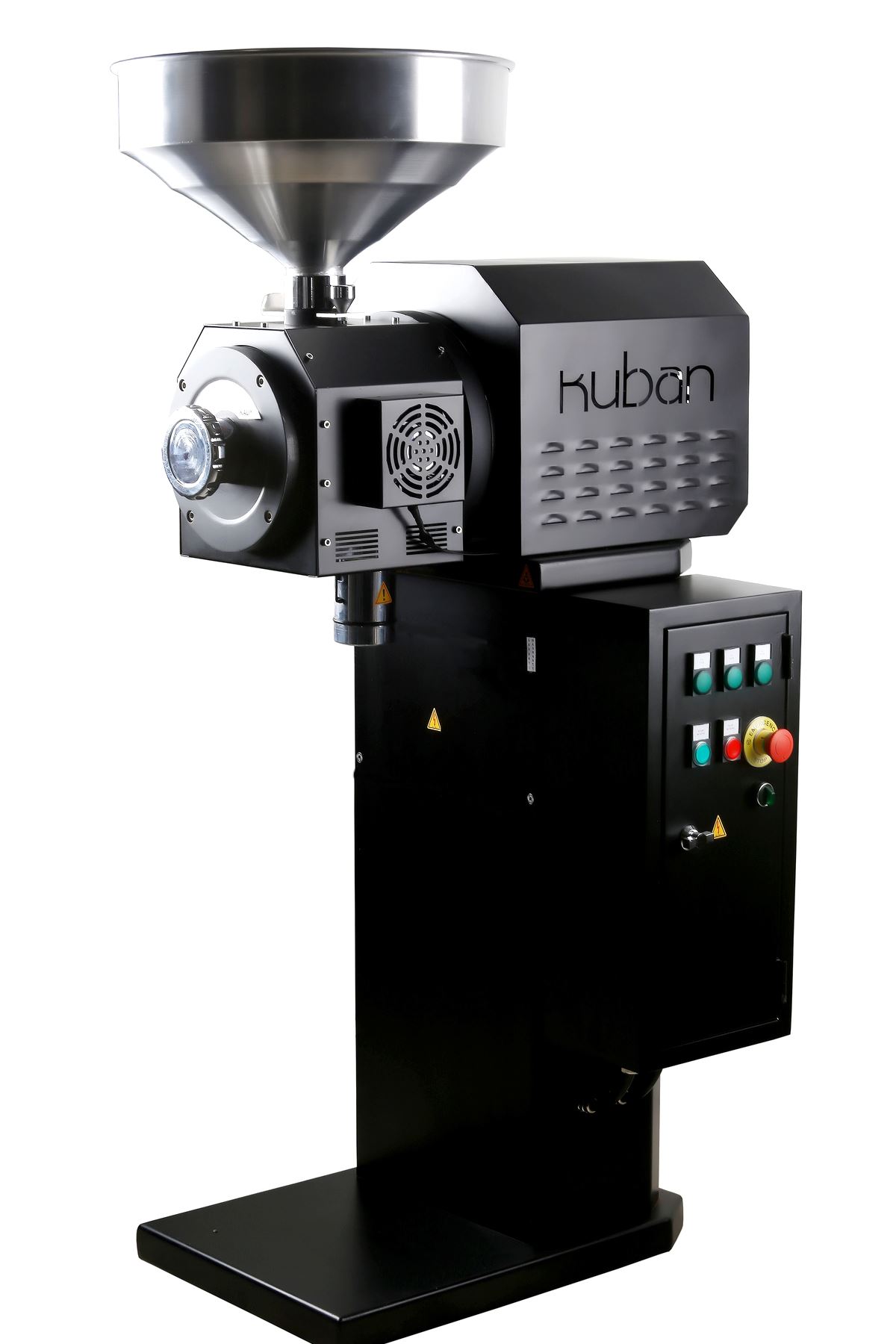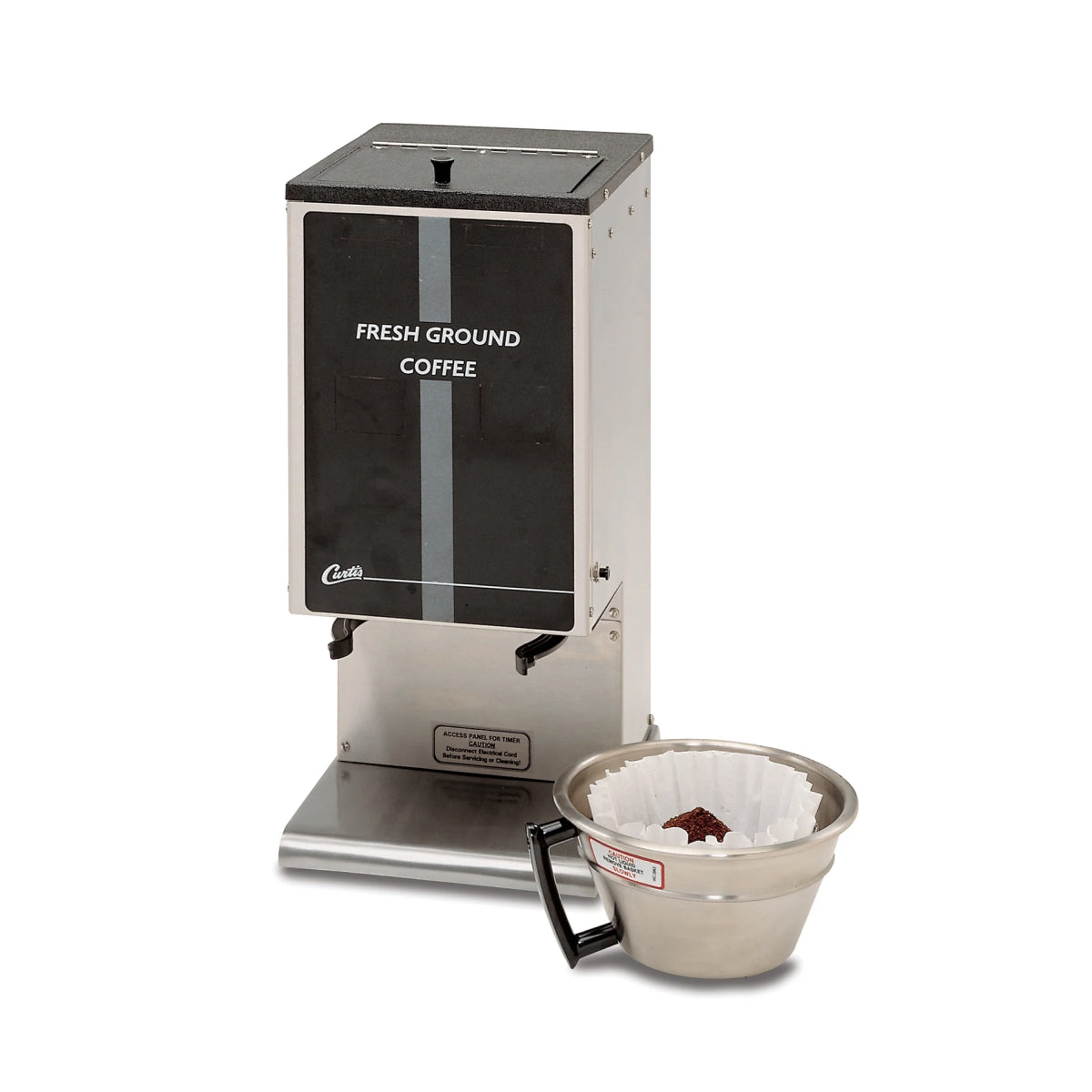Industrial Coffee Grinder: Pros, Disadvantages, and Features to Review
Just How to Select the Perfect Industrial Coffee Grinder for Your Service
Choosing the ideal commercial coffee grinder for your organization is a diverse choice that needs mindful consideration of numerous important factors. It is necessary to assess your details grinding requirements, consisting of the volume of coffee refined and the desired grind uniformity, as these elements straight impact taste and consumer fulfillment. Additionally, comprehending the various sorts of mills available can substantially affect your operational effectiveness. As you browse these considerations, one need to additionally weigh the ramifications of spending plan and maintenance. What other aspects could make or damage your choice?
Assess Your Grinding Demands
When selecting an industrial coffee grinder, one must first examine their grinding requirements to guarantee optimal performance and uniformity. This preliminary evaluation involves comprehending the volume of coffee to be processed daily, in addition to the preferred grind size for various brewing methods. A high-capacity mill might be essential for businesses offering huge amounts of coffee, while smaller sized procedures may discover a more compact version enough.
In addition, it is vital to consider the kinds of coffee beans being made use of, as different beans may require details grinding strategies to accomplish the most effective flavor account. Oily beans could demand a mill developed to handle such attributes without clumping or overheating.
Another essential aspect is the needed work consistency. Specialty coffee services typically demand exact grind dimensions to enhance removal and flavor, making it vital to select a grinder that can supply uniform outcomes. Finally, reviewing the offered area and electric requirements will certainly help in choosing a grinder that fits effortlessly into your operational operations. By extensively evaluating these variables, businesses can make informed choices that line up with their coffee grinding needs, inevitably resulting in a premium product and pleased consumers.
Understand Mill Types
Understanding the various sorts of commercial coffee mills is essential for making a notified selection that fulfills details operational requirements. There are primarily two classifications of mills: blade grinders and burr grinders.
Blade mills use spinning blades to slice the coffee beans, leading to an inconsistent work size - Industrial Coffee Grinder. While they might be extra cost effective, they are frequently not ideal for industrial applications where accuracy is vital
On the other hand, burr grinders give an extra uniform work by crushing the beans in between two surfaces. They can be further categorized into level burr and cone-shaped burr grinders. Apartment burr grinders supply a constant grind dimension and are normally preferred for coffee preparation, while cone-shaped burr mills are functional and can deal with an array of mixture methods, from espresso to French press.
When choosing a mill, consider the particular requirements of your business, consisting of desired work consistency, production quantity, and the kinds of coffee drinks you intend to provide - Industrial Coffee Grinder. Each mill type has its restrictions and advantages, so comprehending these nuances enables notified decision-making that straightens with functional goals
Evaluate Grind Dimension Uniformity
Accomplishing grind dimension consistency is important for producing top notch coffee, as variations in fragment dimension can significantly affect removal and taste. When picking a commercial coffee grinder, it is crucial to evaluate exactly how well the equipment preserves harmony in work size across different sets. Inconsistent grind dimensions can result in unequal removal, Full Report causing a cup that may taste excessively bitter or weak.
To evaluate grind size uniformity, take into consideration mills with attributes such as adjustable work setups and high-grade burrs. Burr mills, particularly, master producing uniform bit sizes contrasted to blade grinders. The material and shape of the burrs play a crucial function, with stainless steel and ceramic alternatives offering toughness and accuracy.

Take Into Consideration Production Capability
In the fast-paced globe of coffee production, thinking about manufacturing capability is extremely important for organizations aiming to fulfill demand without sacrificing high quality. The manufacturing capability of a commercial coffee mill directly influences a business's capacity to meet orders effectively, manage stock, and react to rising and fall market fads.
When analyzing manufacturing capability, it is necessary to assess the grinder's outcome rate, commonly determined in pounds per hour. This dimension should straighten with your organization's predicted sales volume and growth targets. For example, a café with a high turn over may call for a grinder special info that can process numerous hundred extra pounds daily, while a smaller sized operation may suffice with a reduced capacity design.
Additionally, take into consideration the kind of coffee being processed. Various beans and blends may influence grinding speed and efficiency, requiring a grinder efficient in dealing with varied production demands. It's likewise worth considering the grinder's capacity to preserve regular high quality under high output conditions, as any kind of changes can impact the end product.
Eventually, picking a grinder that matches your organization's production ability will ensure you continue to be competitive and receptive to client assumptions.

Budget and Upkeep Aspects
When examining the best commercial coffee budget plan, mill and maintenance elements play a considerable function in the total decision-making procedure. An initial investment in a high-grade mill can yield long-term benefits, however it's vital to develop a clear spending plan that aligns with your company's operational requirements. Think about both the acquisition cost and prospective functional expenses, such as power usage and substitute parts.
Industrial coffee mills need regular upkeep to ensure optimal performance and long life. Examine the producer's recommendations for upkeep, including cleaning timetables and parts substitute, as these will certainly affect lasting functional costs.

Purchasing a mill that is durable yet simple to maintain can conserve money gradually. While lower-priced options may be alluring, they may sustain higher upkeep prices and minimized performance. Eventually, stabilizing initial expenses with long-term maintenance and functional efficiency will lead you to the finest selection for your business's coffee grinding requirements.
Verdict
Choosing the excellent industrial coffee mill demands an extensive analysis of grinding needs, grinder kinds, grind dimension consistency, production capability, and financial considerations. By prioritizing these aspects, businesses can guarantee the purchase of a reputable, efficient grinder that satisfies particular operational needs. An appropriate mill not only enhances the high quality of the coffee created yet additionally adds to the overall success and success of the business. Long-lasting efficiency and upkeep convenience need to remain central to the decision-making process.
Specialized coffee organizations usually require exact work sizes to enhance removal and taste, making it crucial to select a grinder that can deliver consistent outcomes. Flat burr grinders supply a constant work dimension and are usually favored for espresso prep work, while cone-shaped burr grinders are functional and can take care of a variety of brew approaches, from coffee to French press.
When choosing an industrial coffee mill, it is important to assess how well the equipment preserves uniformity in work size across various batches. Burr mills, in specific, excel in generating uniform fragment sizes contrasted to blade mills.Selecting the excellent commercial coffee grinder requires an extensive evaluation of grinding demands, grinder kinds, grind size uniformity, production ability, and budgetary factors to consider.